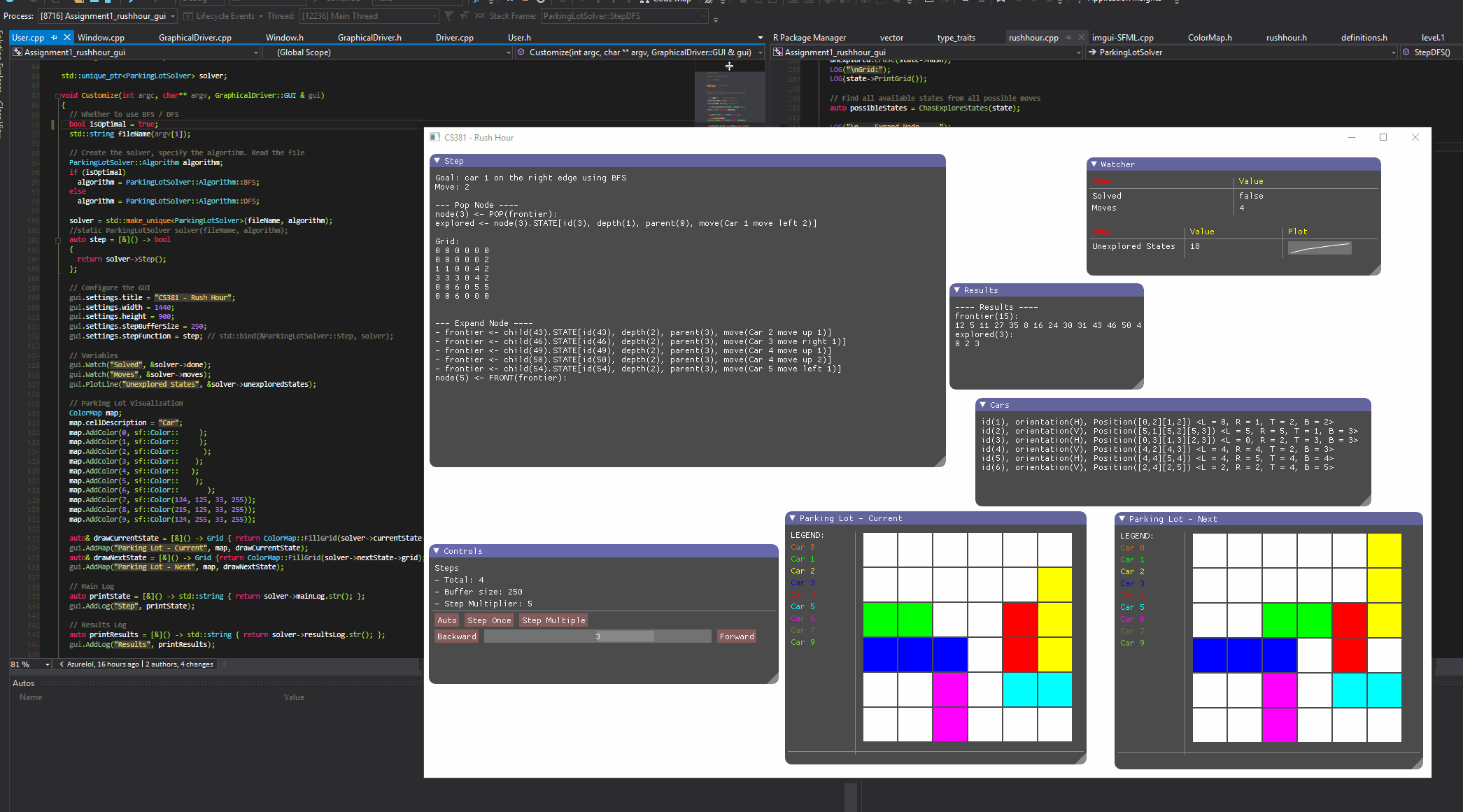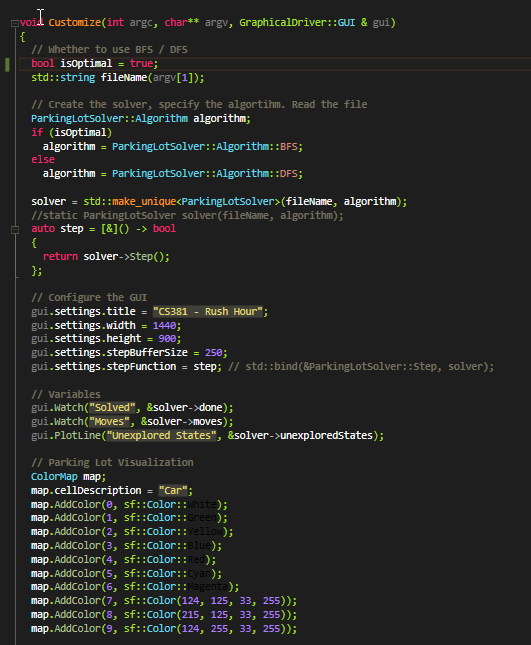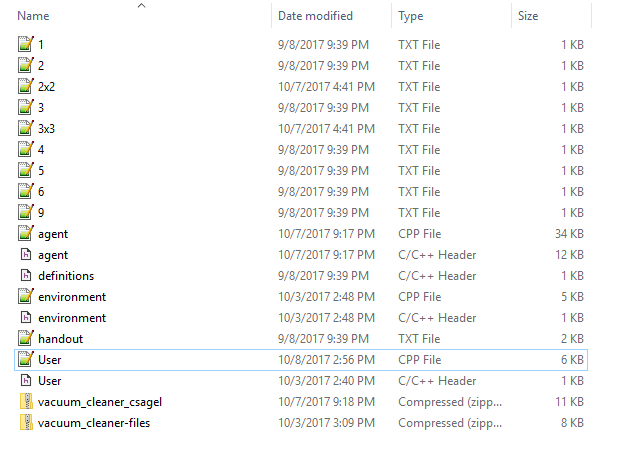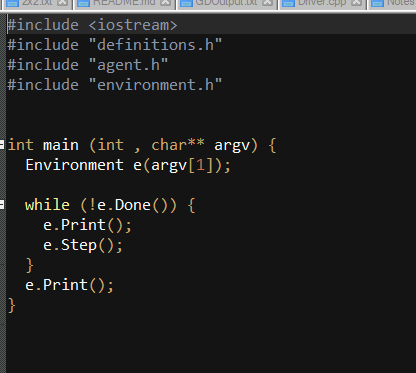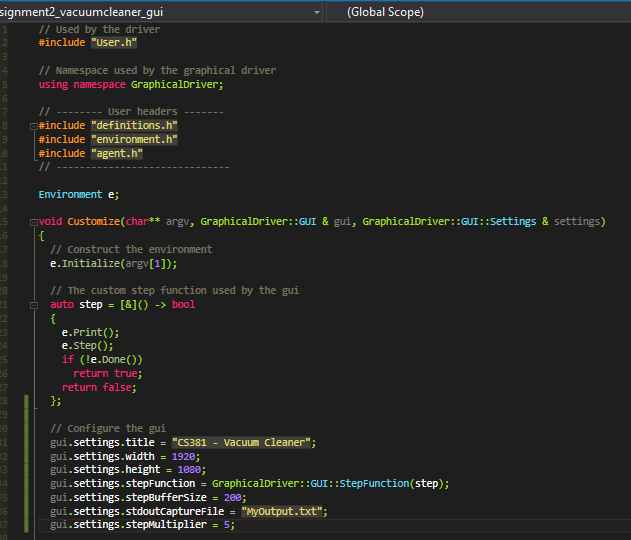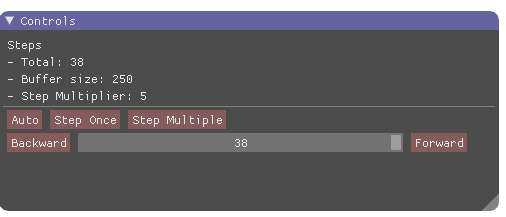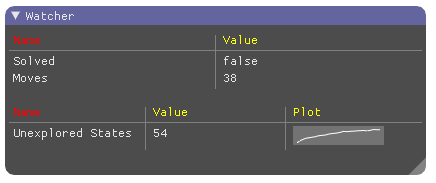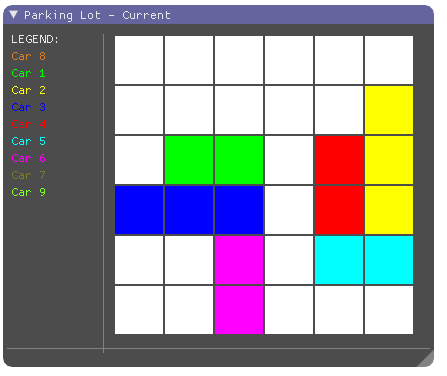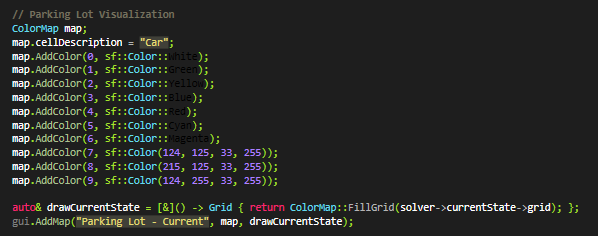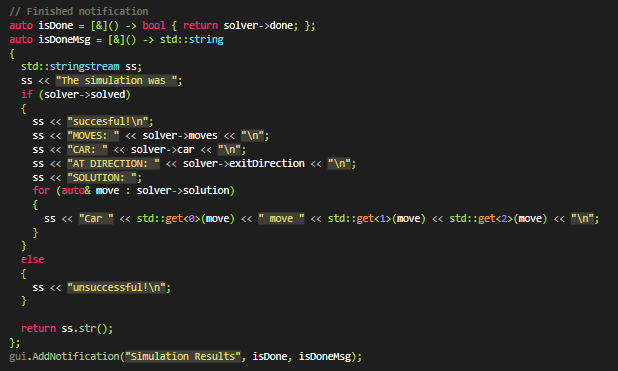A C++ GUI framework for writing drivers/demonstrations for algorithms that can be shown in discrete steps. It works by smoothly integrating into existing drivers that work in a stepwise fashion. That is, whenever you have a driver that runs an algorithm by executing some kind of step function like this, it can be easily integrated into the framework and run through the GUI:
The GUI itself is an object which is configured by the user, who sets its main parameters (such as the main step function it will invoke). It also has a few public functions for adding variables to be watched/plotted in synchrony with the step you are currently on. (Note that I opted to include a set buffer size for the number of steps being kept in memory. It will store up to the last n steps in memory).
The Graphical Driver is meant to be executed inside a Visual Studio 2017/15 project, while in debug mode. (It can compile for release too, of course). I have already gone ahead and prepared a project for the user. The user only needs to customize the driver to their needs in the User source file.
An example of a working folder structure of the driver being used in action:
The user has added all the files provided by the assignment, then written a custom driver adapted from an instructor-provided one. Given the following original driver provided to us:
It can be adapted to be used with Oxana by using it like this instead:
One of the design goals for Oxana is for it to be easily used as a replacement for existing non-GUI drivers by adapting most of it not all of their source to be run through Oxana instead.
The GUI allows you to add your own custom stepwise logging functions. That is, they are expected to encapsulate something about the state of a given step and return it in a string.
The function that prints the above is one that I wrote for a customized driver for one of my classes. The code that led to this window being shown was the following:
Note: For my custom drivers I heavily rely on std::stringstream in order to construct my log per step so that it can be retrieved by my logging functions at the end of the step.
Using a series of controls, you can step through the driver:
- Auto: Keeps stepping until the simulation has completed.
- Step: Performs one step.
- Step Multiple: Using a defined step multiplier, steps that number of times.
- Step Slider: You can use this slider to do a time-line scrubbing through the steps currently stored. That is, those kept currently in the buffer of defined size.
You are able to track the current values of any variables with std::ostream overloads as well as plot them (integer/float types only). Note that variables keep a history that is updated on every new step. This way they are kept in synchrony with your stepBufferSize.
Adding variables to the watcher is done through invoking the following functions:
You can request the driver to draw you the current state of a grid by supplying a function that will provide it per step, as well as a table that will map specific integer indices to colors.
This display was provided by the following code:
You can set custom notifications for specific events in the simulation that you care about. For example when a specified variable goes over a certain amount, when a boolean switches value, etc. The user need only provide either a boolean or a function that returns a boolean (for more detailed logic) and a function to compose the message when the notification becomes active.
This custom notification was added by the following code:
- Bug fix: All logs and plotted variables are now properly synchronized with stepBufferSize, once the GUI has been initialized.
- QOL: The project has been refactored and reorganized in order to make it more flexible (read: faster) when it compares to swapping in and out different drivers. All the user-specific code need only be implemented in User.cpp
- Feature: The variable watcher now uses std::stringstream to record the value of the variable. This means that overloading the ostream operator for your custom types will give you custom output!
- QOL: The latest values for all watched variables are now recorded on strings kept on the object, preventing constant allocations per frame.
- Bug fix: Settings for the window context were not being properly updated after the constructor was called. This has been now fixed so you can set custom resolutions!
- QOL: Added hotkeys for stepping forward, backward, next, and multiple. These are the left, right and down arrow keys by defaults.
- Grid display: You can now request the driver to draw you the current state of a grid by supplying a function that will provide it per step, as well as a table that will map specific integer indices to colors.
- Notifications: You can now set up custom notifications for specific events in your simulation. For example:
- dear imgui: Dear ImGui is a bloat-free graphical user interface library for C++. It outputs optimized vertex buffers that you can render anytime in your 3D-pipeline enabled application. It is fast, portable, renderer agnostic and self-contained (no external dependencies) It is designed to enable fast iteration and empower programmers to create content creation tools and visualization/ debug tools (as opposed to UI for the average end-user). It favors simplicity and productivity toward this goal, and thus lacks certain features normally found in more high-level libraries.
- SFML: A simple, fast, cross-platform and object-oriented multimedia API. It provides access to windowing, graphics, audio and network. It is written in C++, and has bindings for various languages such as C, .Net, Ruby, Python.
- imgui-sfml: An excellent wrapper library for using SFML with 'dear imgui'.
